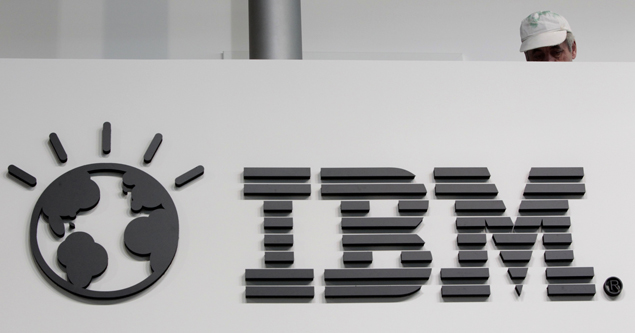- Home
- Laptops
- Laptops News
- IBM blames weak sales and weaker yen for disappointing quarter
IBM blames weak sales and weaker yen for disappointing quarter

Much like Oracle last month, IBM blamed a poor performance by its sales force for some of the shortfall. But analysts said it was not just one quarter - the company's sales have been weakening consistently, dragging down results with or without the changes in the yen.
"Their revenue has been declining for basically many quarters in a row. You can't have revenue declines and consistently expect your earnings to beat. That is catching up with them," said ISI Group analyst Brian Marshall.
IBM is known for keeping a tight rein on costs and focusing on high-margin software, allowing it to generally exceed Wall Street expectations, even in a tough economic environment.
But Chief Financial Officer Mark Loughridge blamed poor sales execution for the failed closing of a number of deals, as well as the Easter holiday at the end of March. Around $400 million worth of deals expected to close in the first quarter had been moved into the second, IBM said.
On a conference call with analysts, Loughridge also said it was unclear whether the sequester - a series of automatic U.S. federal budget cuts - had an effect.
"It's hard to measure. I can tell you that our U.S. federal business was down 13 percent, which was certainly a drag on the U.S. performance," he said.
Maintains target
The yen was at least something of an issue in the quarter as well. The deterioration in the Japanese currency since mid-January reduced earnings by 7 cents per share, a spokesman said.
Loughridge said IBM was "clearly not immune from changes in the global economy," noting the weak yen and the difficulty IBM has had in hedging that currency.
Howard Silverblatt, senior index analyst at S&P Dow Jones Indices, said recently that nearly two dozen top U.S. companies - including IBM - derive 10 percent or more of their sales in Japan. He expects those companies to quickly see the impact of the weakening currency.
But analysts said the yen issue was not foremost for them among IBM's other problems.
"This is really a combination of several factors," Macquarie Research analyst Brad Zelnick said. "At the end of the day it's the environment and demand for the products (companies) have to offer. Execution is another word for 'we're facing some challenges here.'"
IBM's first quarter non-GAAP income rose 3 percent to $3.4 billion, or $3 per share, but missed analyst estimates of $3.05 a share, according to Thomson Reuters I/B/E/S. It was the first time it at least nine quarters that IBM missed estimates.
Quarterly revenue dropped 5 percent to $23.4 billion, compared with estimates of $24.6 billion. Revenues fell 3 percent adjusted for currency.
For the current quarter, IBM is anticipating a restructuring charge of almost $1 billion and EPS in a similar range to the first quarter. Analysts expected earnings of $3.95 per share in the second quarter.
However, Loughridge expected EPS to improve in the second half of the year, allowing IBM to reach its full year target of at least $16.70 per share.
IBM shares lost 3.4 percent from a closing price of $207.15 in extended trading following results.
Forrester Research's Andrew Bartels said the results showed IBM was somewhat impacted by the sequester, but that Microsoft's results showed tech spending was not generally down.
"What we're getting from these two results are somewhat different perspectives on how the macroeconomic environment is impacting tech spending," he added.
© Thomson Reuters 2013
Get your daily dose of tech news, reviews, and insights, in under 80 characters on Gadgets 360 Turbo. Connect with fellow tech lovers on our Forum. Follow us on X, Facebook, WhatsApp, Threads and Google News for instant updates. Catch all the action on our YouTube channel.
Related Stories
- Samsung Galaxy Unpacked 2026
- iPhone 17 Pro Max
- ChatGPT
- iOS 26
- Laptop Under 50000
- Smartwatch Under 10000
- Apple Vision Pro
- Oneplus 12
- OnePlus Nord CE 3 Lite 5G
- iPhone 13
- Xiaomi 14 Pro
- Oppo Find N3
- Tecno Spark Go (2023)
- Realme V30
- Best Phones Under 25000
- Samsung Galaxy S24 Series
- Cryptocurrency
- iQoo 12
- Samsung Galaxy S24 Ultra
- Giottus
- Samsung Galaxy Z Flip 5
- Apple 'Scary Fast'
- Housefull 5
- GoPro Hero 12 Black Review
- Invincible Season 2
- JioGlass
- HD Ready TV
- Latest Mobile Phones
- Compare Phones
- Tecno Pova Curve 2 5G
- Lava Yuva Star 3
- Honor X6d
- OPPO K14x 5G
- Samsung Galaxy F70e 5G
- iQOO 15 Ultra
- OPPO A6v 5G
- OPPO A6i+ 5G
- Asus Vivobook 16 (M1605NAQ)
- Asus Vivobook 15 (2026)
- Brave Ark 2-in-1
- Black Shark Gaming Tablet
- boAt Chrome Iris
- HMD Watch P1
- Haier H5E Series
- Acerpure Nitro Z Series 100-inch QLED TV
- Asus ROG Ally
- Nintendo Switch Lite
- Haier 1.6 Ton 5 Star Inverter Split AC (HSU19G-MZAID5BN-INV)
- Haier 1.6 Ton 5 Star Inverter Split AC (HSU19G-MZAIM5BN-INV)






![[Partner Content] OPPO Reno15 Series: AI Portrait Camera, Popout and First Compact Reno](https://www.gadgets360.com/static/mobile/images/spacer.png)









